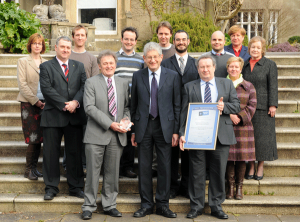DIPLE
Project Overview
As printing is one of the largest manufacturing sectors in Europe, and is a significant economic driver and major industry in Wales, there is a strong need for Welsh businesses to be at the forefront of innovation and to be involved with research and development, in order to create a sustainable, high skill sector for ongoing employment and economic development.
The DIPLE project helped small and medium sized businesses within the printing and coating industry in Wales to become more competitive through the implementation of best practice as well as developing new high quality products through novel uses of printing.
The project was funded by the ERDF with the aim of bridging the gap between academia and industry. Its main objectives were to encourage and help companies within Wales to innovate, deliver new technologies to industry and to promote the wider application of clean technology reducing the use of natural resources.
DIPLE, an acronym of Digital, Industrial, Packaging, Lean & Environmental, targeted specific areas of the industry in order to maximise its impact by to build case studies showing best practice to enhance the transfer of knowledge amongst businesses.
DIPLE aimed to help Welsh businesses become more competitive, to improve production quality and to reduce waste and emissions to improve the environment. The project also aimed to make companies aware of the opportunities for innovation in their sector – from smart packaging, to biomedical technologies, to printed electronics. The team achieved this by:
- delivering new technologies to industry,
- helping to support the new high added value industrial and digital printing companies
- supporting knowledge transfer within the industry,
- writing case studies to show how to develop and enhance businesses in the printing sector
- promoting the wider use of clean technologies and to become more environmentally friendly
Between January 2004 and April 2008, over 118 collaborative projects were conducted within partner companies, which lead to significant increases in turnover and 170 jobs safeguarded.
The project won the Research, Technological Development and Innovation category for best project in the 2009 RegioStars awards.

Project Details
Duration: 2004-2008
Project Lead: Dr Simon Hamblyn
Download this page as a PDF


